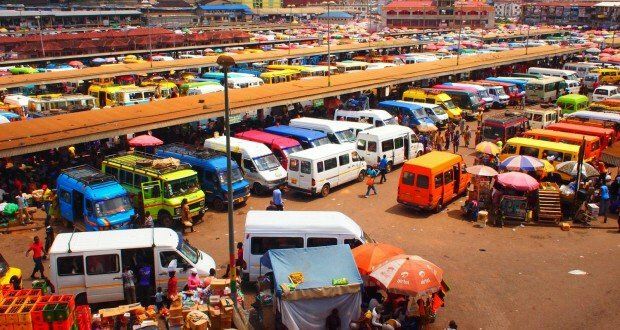Senior Industrial Relations Officer of the Ghana Private Road Transport Union (GPRTU), Abass Ibrahim Moro, has warned Ghanaians to be on the lookout for price increments in transportation fares.
According to him, the increase in tariffs by government has left the various driver unions with no choice than to increase transport fares – which could go up by as much as 100 percent. He lamented that in February to March alone, fuel prices have been increased five times. He said these price increments coupled with other stuff have contributed to the decision taken by the unions.
He was however quick to add that the price increment will not take effect immediately, as the Concerned Drivers Association had announced earlier this week. This is because the GPRTU is patiently waiting for government’s proposed 5.7 percent increment on prices of petrol and diesel as part of new levies it is imposing on Ghanaians.
The 2021 budget as presented by Parliamentary Affairs Minister, Osei Kyei-Mensah-Bonsu, introduced a new 10 pesewas Sanitation and Pollution Levy as well as a 20 pesewa levy to cater for charges on the country’s excess power capacity subject to parliamentary approval.
“We have to wait for the bill to be passed before we make any adjustments, because it also contains certain clauses which increase the price of our activities for work. So, if we rush and increase transport fares and parliament passes the bill, we will have to also adjust the fares again. So, the increment in fuel prices is highly dependent on whether the bill will be passed or not: however, we will not allow it to delay us. When we realise it is keeping long, we will go ahead and increase it,” he said.
Answering how much fares will be increased to, Mr. Abas noted that “ever since fuel prices and spare-parts increased in price, there has not been an increment in transport fares. Therefore, we will put all these together and increase it by that percentage – and this could even be a 100 percent increment”.
Increased road tolls
Mr. Moro also lamented the payment of toll fares. He opined that there should be effective supervision to enable accuracy and good accountability for monies taken as tolls.
“The institution taking care of the tolls is very weak with poor supervision; hence, use of the monies is not noted. We need accountability from them. What are they using the toll fares for? Our roads are dilapidated, and we always hear of countries that have sent in some funds to sponsor our road constructions. So, what are the toll fares used for?” questioned Mr. Moro.
Earlier this month, the Concerned Drivers Association announced their intention to increase transport fares by 10% – but the move was quashed after conversations with the GPRTU. The association had complained that the increment became necessary due to increases for the service charges and documentation at the Driver and Vehicle Licencing Authority (DVLA).
In an interview, the Concerned Drivers Association noted that the DVLA increased is charges without any consultation with drivers, and therefore there is need for a cordial relationship between the Concerned Drivers Association and the DVLA to keep them in the know concerning issues such as these.










